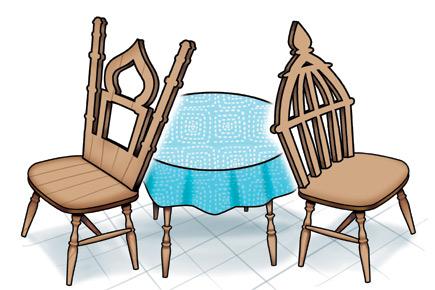For years, I’ve written in restaurants. People-watching helps me build characters. Fragments of dialogue helps my prose. My usual hangouts are spaces I frequented as a teenager

 For years, I’ve written in restaurants. People-watching helps me build characters. Fragments of dialogue helps my prose. My usual hangouts are spaces I frequented as a teenager. Dingy little eateries nestled in Gwalior Tank and Tardeo, usually attracting multi-communities owing to their convenient centralised locations. Now they are a tad more up-market with the addition of fish tanks and family rooms. Back in the ’80s, these restaurants were microcosms of the various communities co-existing in harmony.
For years, I’ve written in restaurants. People-watching helps me build characters. Fragments of dialogue helps my prose. My usual hangouts are spaces I frequented as a teenager. Dingy little eateries nestled in Gwalior Tank and Tardeo, usually attracting multi-communities owing to their convenient centralised locations. Now they are a tad more up-market with the addition of fish tanks and family rooms. Back in the ’80s, these restaurants were microcosms of the various communities co-existing in harmony.
Seated at separate tables, but breaking bread together. And then in December 1992, Babri Masjid-Ram Janmabhoomi happened. Our two largest religions went at each other, hammer and tridents. I’m going to take it a step further, dear reader.
ADVERTISEMENT

Illustration/Amit Bandre
I think a larger Pandora's box has been prised open. Where differences between all communities that were once celebrated are now condemned. I think tolerance lies in tatters, cosmopolitanism is a charade. So while we may still accept each other, and grenades may not be flung under doors, Bombay’s live and let live attitude is outdated.
Community traditions are a source of irritation now. The 11 days of drums and disco during Ganesh Chaturthi are grating on the nerves. Muslim prayer spilling out around Bandra station causes much inconvenience. Chhat puja occupying public beaches is a hindrance. Daily religious processions disrupt traffic. “I take to the streets in reverance to my God. My deity best.” So while Mumbai is a pot pourri of many communities, I sense that pot is over heating. Last evening, I was sitting at my favourite dark watering hole situated at August Kranti Maidan.
A table full of raucous boys, fresh from a desi FIFA game were regaling each other in Marathi, eager to impress their John Abraham lookalike captain. I watched the faces of other patrons, and there was a suggestion of annoyance. Not for the loudness or the foul language. But for the dialect and its implications. Diverse languages create a divide now. A family of Bohris walk in, the women appropriately dressed in their Ridas, the men, long bearded, their headwear in place.
They break into their brand of Gujarati. A table of Ahmedabadi stockbrokers look up at this travesty of their beloved language. Much rolling up of eyes and shaking of heads. “This is Mujarati (Muslim Gujarati)”, they are thinking. To top the evening at table no 5 is a group of Parsis, who respond non verbally with “There's Gujarati spoken by these ‘Parjats’ and then there’s our hallowed Queen’s Gujarati.”
I would have found this scene hilarious 15 years ago. Today I feel anger in the air. Bonhomie has been deposited in a bonfire of prejudice. Communities have shut shop on caste camaraderie. Tolerance has a layer of tension on it.
So you still love thy neighbour, but with some reservations.
Tell me I’m totally wrong.
Rahul da Cunha is an adman, theatre director/playwright, photographer and traveller. Reach him at rahuldacunha62 @gmail.com
The views expressed in this column are the individual’s and don’t represent those of the paper.
 Subscribe today by clicking the link and stay updated with the latest news!" Click here!
Subscribe today by clicking the link and stay updated with the latest news!" Click here!







